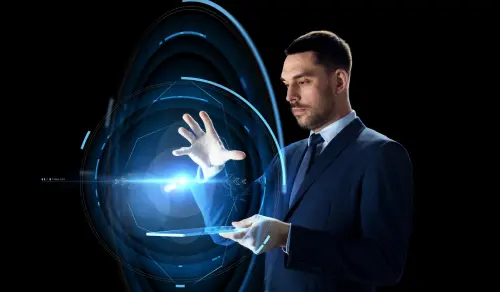5 Areas Where Legal AI Cannot Outperform Lawyers
Legal AI is revolutionising how legal professionals approach contract review or legal risk analysis in their day-to-day work. There are echoes that the technology may take away lawyers' jobs but, despite its effectiveness in repetitive tasks and data analysis, there are fundamental areas of legal practice where human expertise, judgement and creativity are indispensable.
In this article, we will demystify some of the capabilities of legal AI, exploring five key areas where legal AI cannot (at least for now) outperform lawyers. Join us to discover why this technology is set to be a key tool for the in-house lawyer, but always supported by human knowledge balancing technology and experience in day-to-day work.
This article is also available in Spanish.
Five areas where legal AI cannot outperform lawyers:
- Empathy and understanding of human contexts
- Strategic negotiation skills
- Ethical judgement and moral decision-making
- Creativity in solving complex legal problems
- Persuasive communication and argumentation in litigation
Empathy and understanding of human contexts
Lawyers do not only deal with facts and law; they also deal with people. Empathy and the ability to understand the human context behind each case are fundamental to legal practice, and this is an aspect that legal AI lacks, even though it is capable of interpreting very specific contexts and casuistries.
Generative legal AI cannot capture body language, tone of voice or emotions
In labour disputes, emotions are often running high and an experienced lawyer can interpret the emotional needs and fears of both parties, mediating in a way that makes both feel that their concerns have been heard. While legal AI can analyse the terms of a contract, it cannot pick up on body language, tone of voice or emotions - key factors in building trust and facilitating agreements.
Strategic negotiation skills
Negotiation is an art, not a science. Lawyers combine experience, analysis and constant adaptation to negotiate successfully. Smart negotiation involves anticipating the other side's reactions, assessing power dynamics and having the ability to adjust strategies on the fly.
For example, in a business negotiation, such as an acquisition, a lawyer can identify when to concede on a minor point to secure a more significant gain. Legal AI can provide analysis based on historical data but lacks the flexibility and intuition needed to manage unpredictable and complex situations.
Ethical judgement and moral decision-making
Legal practice is not always about what is legally correct, but about what is morally appropriate. Legal AI operates under parameters set by algorithms and does not have the rationality or capacity to make ethical decisions.
A clear example would be deciding whether to move forward with a case whose legal strategy is valid but could negatively affect the company's reputation. Here, the lawyer's ethical judgement is crucial in balancing legal priorities and organisational values. Algorithms cannot assess the moral impact of their decisions rationally, whereas a lawyer can.
Creativity in solving complex legal problems
Law rarely follows a linear path. Every case has nuances and complexities that require a lawyer's creative thinking to find innovative solutions.
Imagine a contractual dispute where the solution is not in the main text but in a seemingly irrelevant secondary clause. Lawyers can spot these opportunities thanks to their lateral thinking skills, something that legal AI cannot replicate at the same level. While AI processes data efficiently and can make recommendations on clauses or general estimates, it lacks the ability to ‘think outside the box’ like a lawyer: its ability to propose novel approaches is more limited than that of a legal professional.
Persuasive communication and argumentation in litigation
In a trial, the ability to connect with judges and juries is essential. Beyond the facts, lawyers tell persuasive stories that generate empathy and convey credibility.
For example, in a criminal case, the lawyer not only presents evidence but structures his argument to influence the jury emotionally. He knows how to use body language, tone of voice and the rhythm of his words to capture attention and convince. Legal AI can help analyse case law or suggest legal arguments, but it cannot replace the rhetoric and emotional connection that an experienced lawyer brings to a courtroom.
So what is legal AI good for?
While there are areas where legal AI cannot compete with human skills, its role as a complementary tool is indisputable. AI is designed to perform repetitive tasks and analyse large volumes of data quickly and accurately, allowing lawyers to focus on strategic and higher-value activities.
1. Massive analysis of legal documents
AI can review hundreds of contracts in minutes, identifying risky clauses or unfavourable terms. This saves time and reduces the margin of error in manual tasks.
2. Automated regulatory compliance
In highly regulated industries, legal AI helps ensure that contracts and internal procedures comply with local and international regulations.
3. Legal risk management
AI can analyse patterns in court cases to predict legal risks or propose strategies based on historical data.
4. Summary generation
AI assistants can generate clear and concise summaries of lengthy legal documents, enabling lawyers to make informed decisions more quickly.
You may be interested in: How to apply AI in legal tech: what can it do for lawyers?
A key tool to complement the lawyer's talent
Fortunately for lawyers, AI cannot currently replicate human skills such as empathy, creativity, ethical judgement and persuasive communication, which are essential for professional performance in the legal sector. Rather than competing, AI complements these capabilities, offering efficiency in mechanical tasks and data analysis.
The future of law is neither human nor technological; it is a combination of both. Lawyers who know how to integrate technology into their daily practice will be better prepared to meet the challenges and opportunities that this new legal era brings. Are you ready to make the most of this balance between technology and talent?
If you want to discover the legal AI assistant that can revolutionise the way you work with contracts, it's time to meet Libra. Download the ebook below and get to know our assistant in depth.
 By
By





